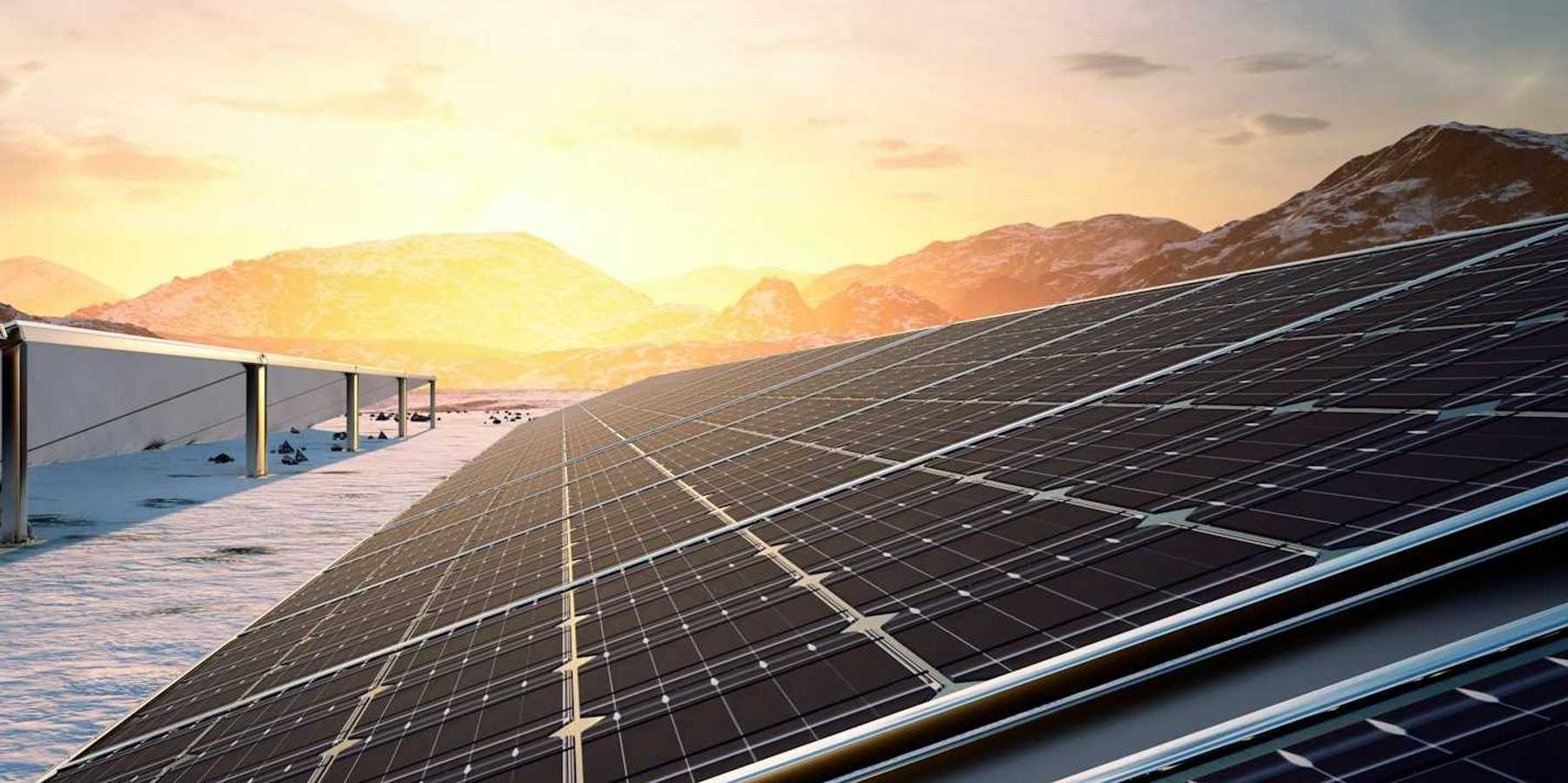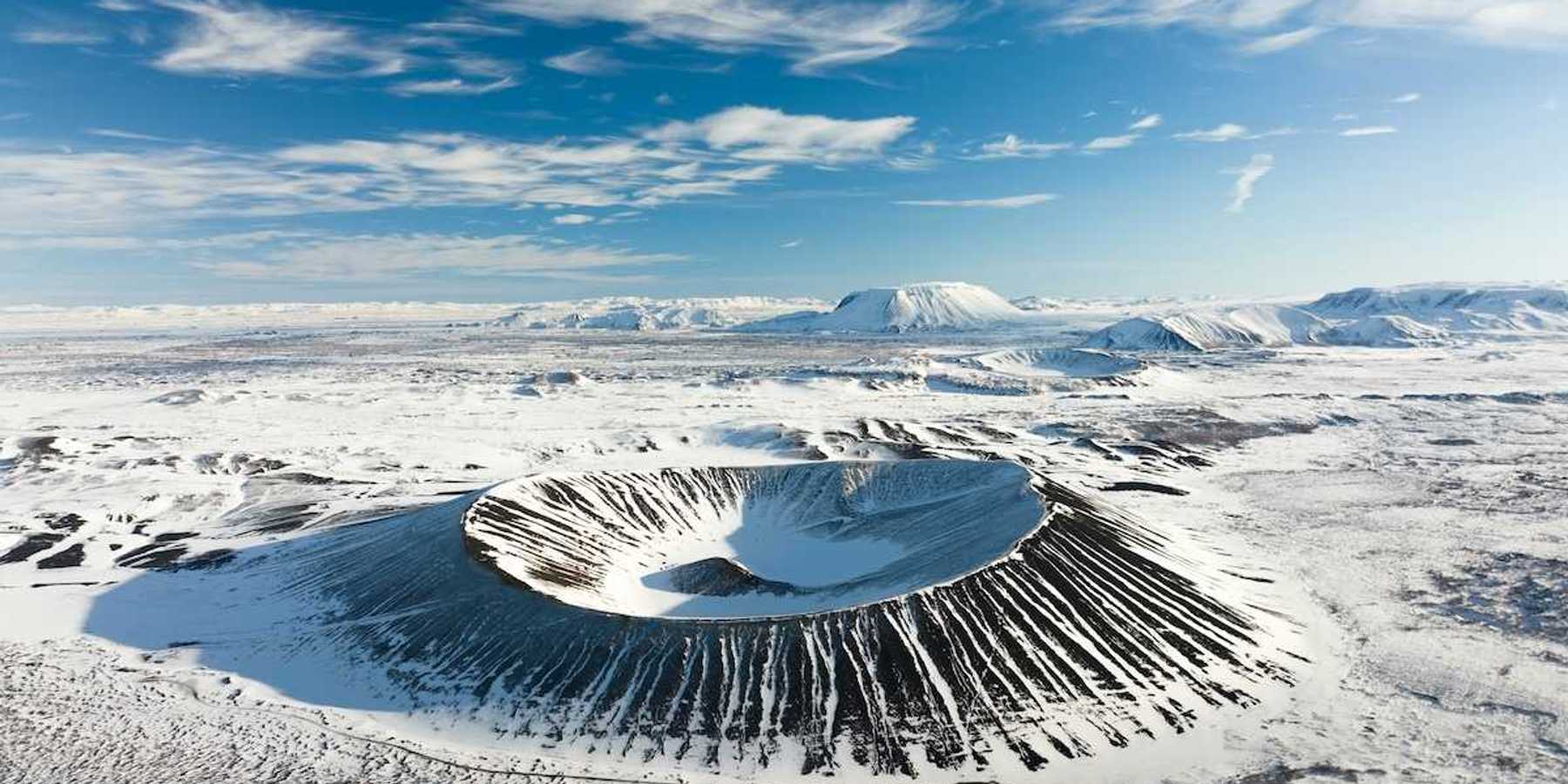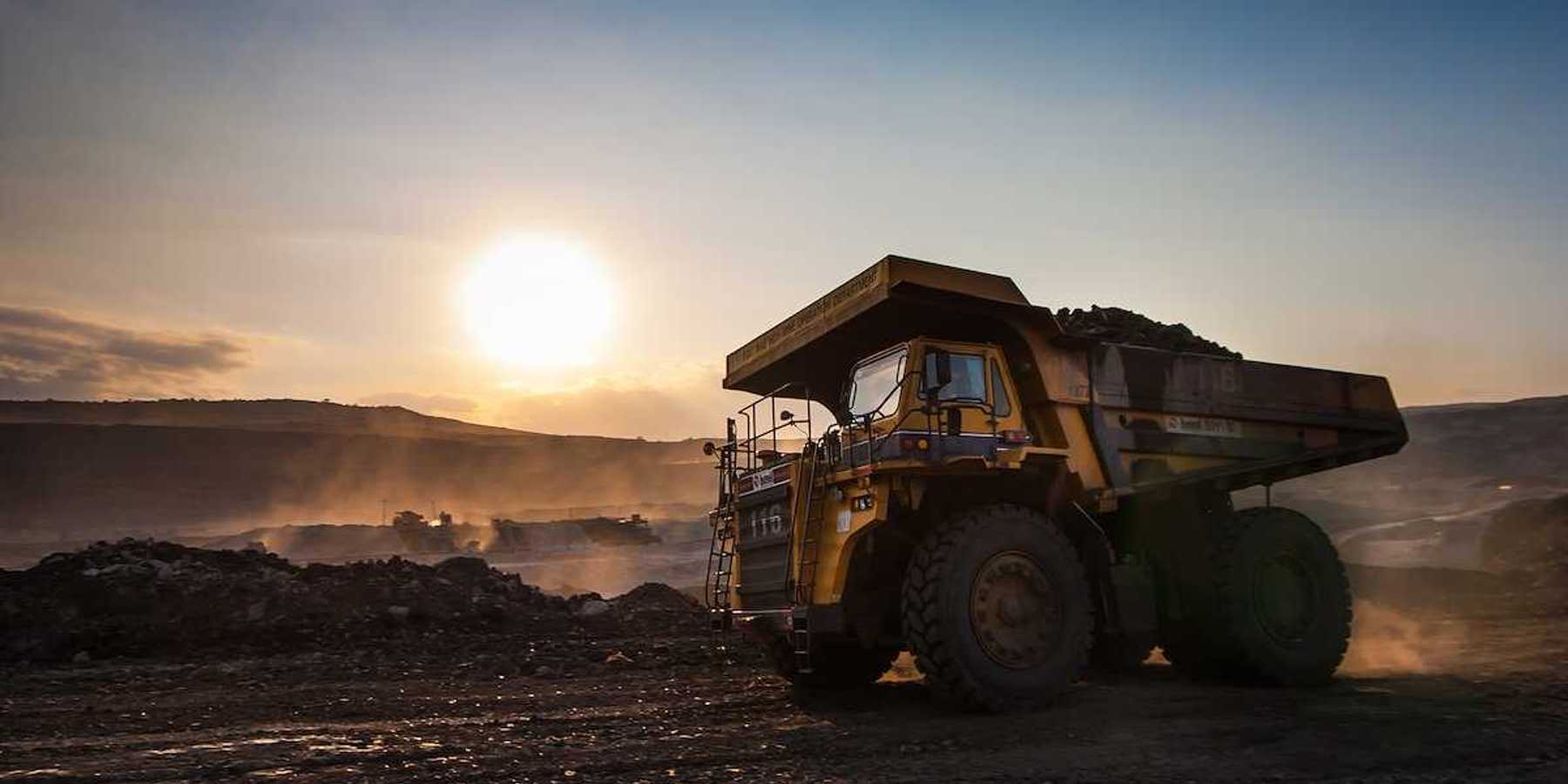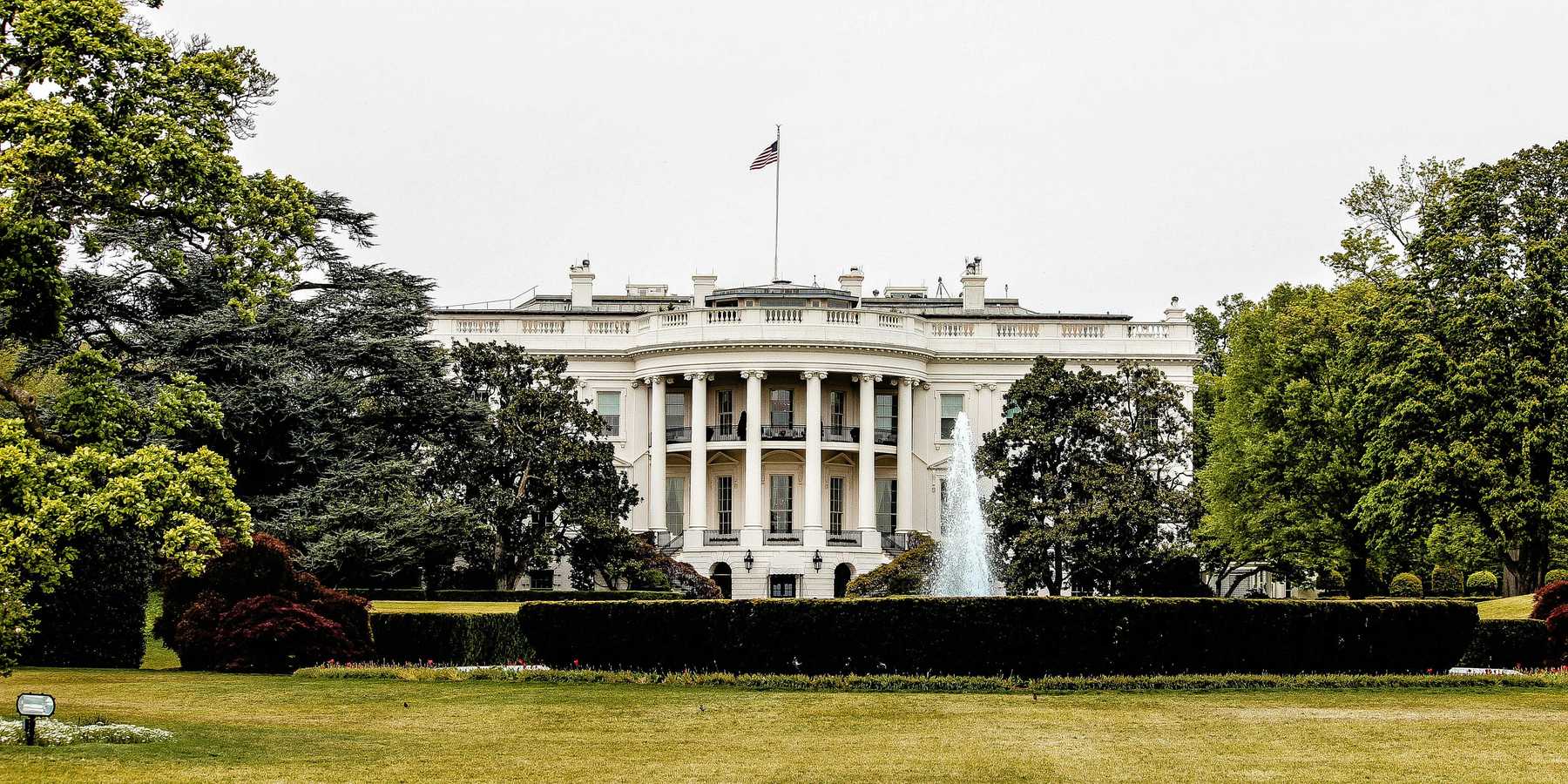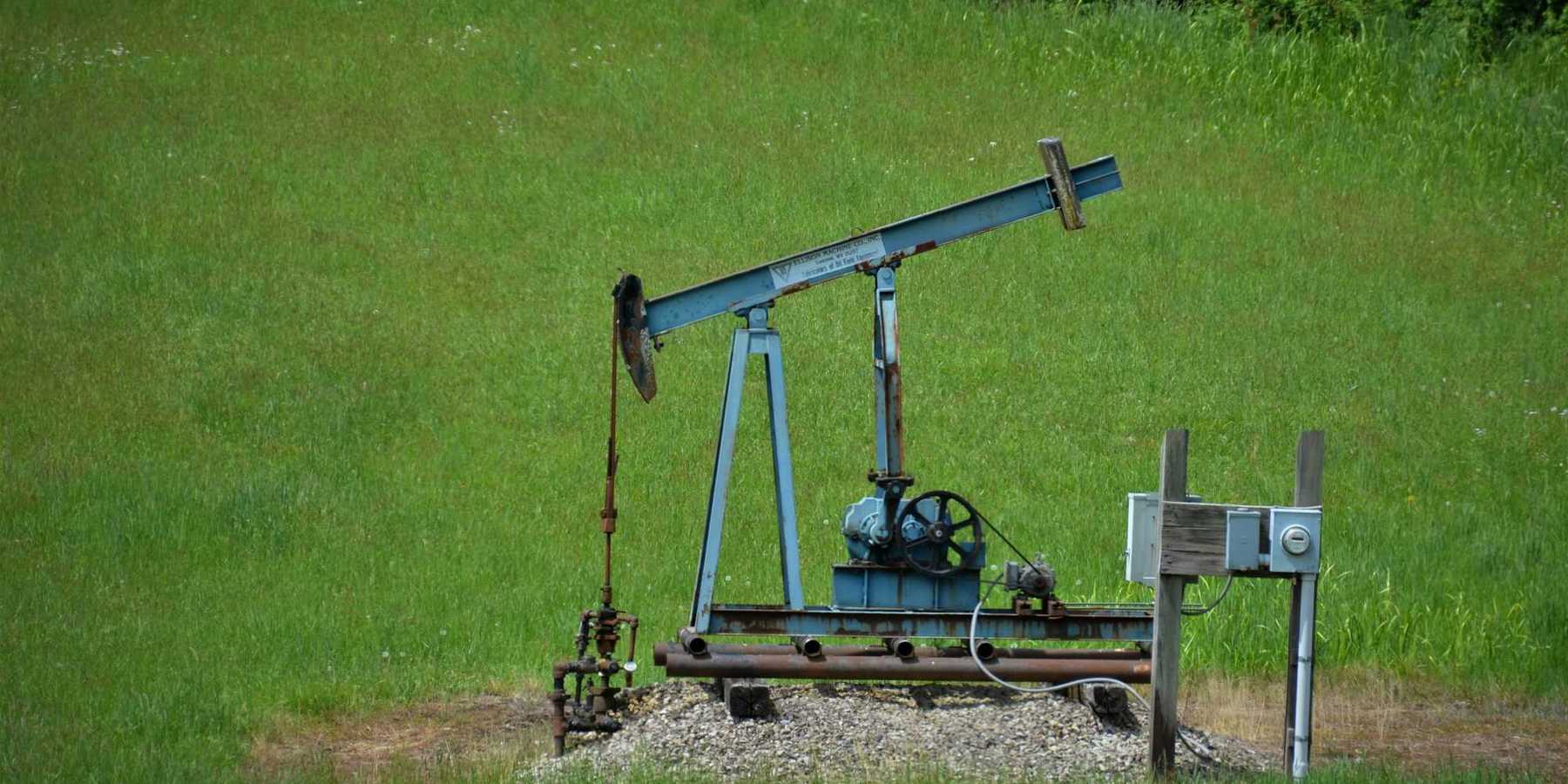
Optimism in the climate change fight
So much is happening so quickly. With the climate bill now law, here's what you need to know.
Unless you've been off the grid, you know that Congress passed – and Biden yesterday signed – the biggest package of climate change legislation the United States (and the world) has seen.
At Environmental Health Sciences, we put news and science into context. What we're seeing right now is optimism:
Those in the trenches working on climate mitigation, climate solutions, clean energy and climate justice say goals that felt impossible yesterday feel achievable today.
So much is happening, so quickly, you need a way to keep up – and filter the noise. Our team works around the clock across 11 time zones to find the most consequential news about our health and environment.
Here's a quick roundup of some reporting you may not have seen amid the torrent of coverage.
Inflation Reduction Act, explained
Start with the basics.
One of the better overviews comes from vlogger Hank Green, who in 23 minutes dissects the bill, its flaws, the history of climate obstruction and how the Inflation Reduction Act overcomes them. There's even, as a friend noted, "a bit of cathartic rage" at the end as a bonus.
Green captures the optimism of the moment: "Nothing gets done if you don't believe it can get done. And I, for the first time in decades of this, have started to believe it can be done."
It's long, but graphics, factoids and an interview with EPA administrator Michael Regan make it worth your time.
How the Inflation Reduction Act helps you

The Inflation Reduction Act contains a number of provisions for home efficiency credits
Credit: Bluewater Sweden/Unsplash
How does the bill help you?
- Yahoo Finance's Ben Werschkul looks at four ways it kicks in right away, notably on home energy efficiency credits and health care costs (it is, after all, an anti-inflation bill).
- Vox's Rebecca Leber looks at underrated parts of the bill.
"One of the most damaging legacies of the intersection between racism and fossil fuels is how highways were built to cut through Latino and Black communities…. The Inflation Reduction Act includes a federal infusion of cash for community projects aimed at addressing some of the harmful effects of these projects."
- To ensure that point doesn't get missed, the White House put out a fact sheet on how the bill helps Black communities.
- Indeed, the White House's virtual briefing room is breaks apart how the bill helps rural America, young Americans, environmental justice and individual states.
Helping Nature … and the GOP
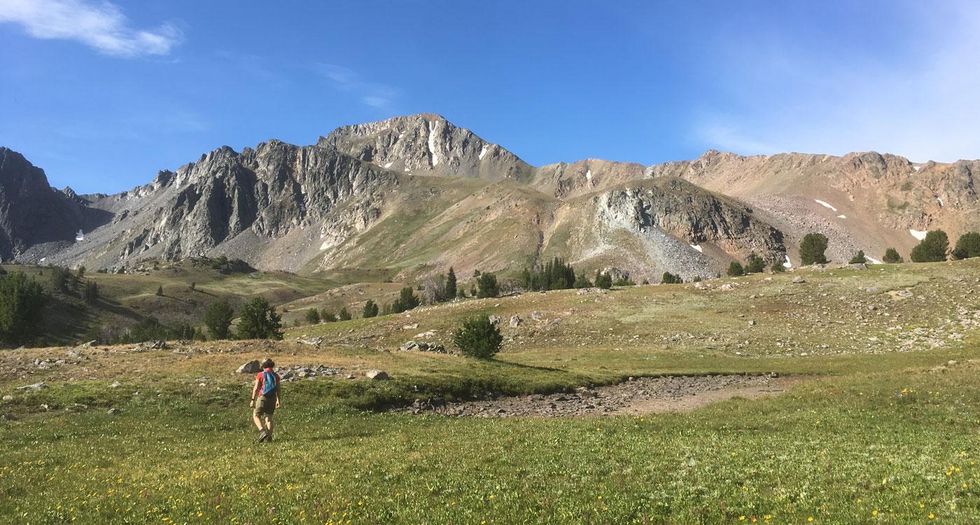
A hiker crosses an alpine meadow in Montana's Lee Metcalf Wilderness
Credit: Douglas Fischer/EHS
Major news outlets have flooded the zone with coverage, and Politico and the Washington Post are no exception. They have two fine sidebars worth attention:
The Post's Brady Dennis looks away from high-tech solutions to focus on how the bill helps … Mother Nature.
"The Inflation Reduction Act includes an acknowledgement that land is a profound ally in the fight against climate change," he writes.
And Politico's Catherine Morehouse has a delightful little poke of GOP governors opposing the Democrat-driven climate bill – and how their states stand to gain.
- A key stat: "Republican-led states are some of the largest wind and solar producers in the U.S. and have benefited greatly from the past decade of green energy expansion not only through job growth, but through lower ratepayer prices."
The 'Battery Belt'
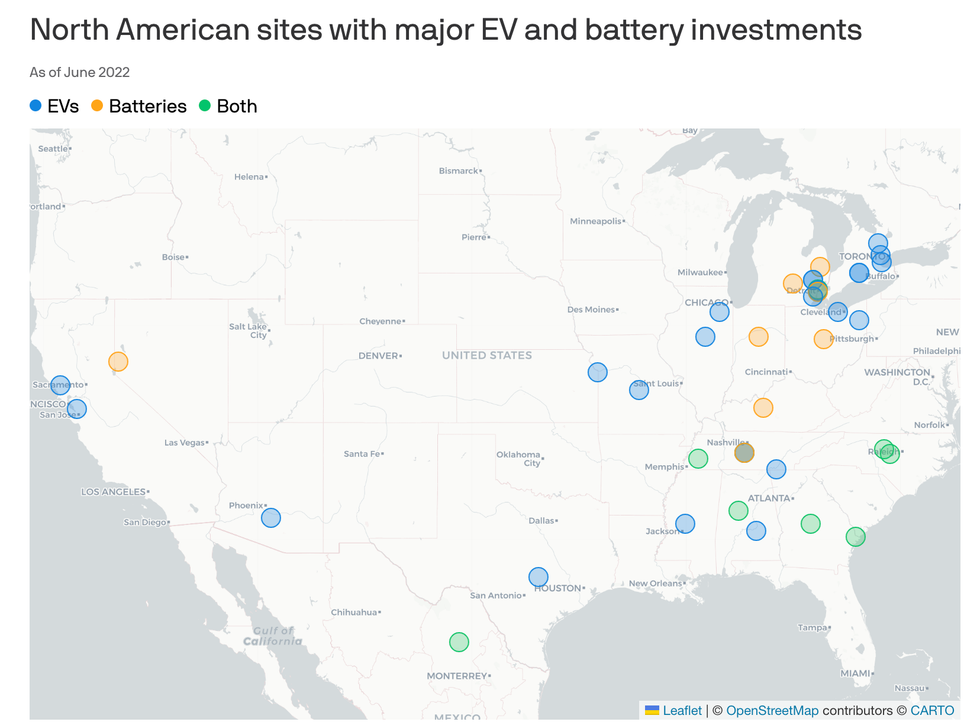
North America's new 'battery belt' largely overlaps its old 'rust belt.'
Credit: Axios
Axios has a sharp piece looking at how investments in battery tech promise to revive America's heartland.
- Why it matters: "The package is a major economic jolt for a big swath of the country — being called the new Battery Belt — where manufacturers are building lots of electric-vehicle-related factories."
The bigger picture from Congress
A tweet thread from Sen. Brian Schatz, D-Hawaii, puts the Inflation Reduction Act in a larger perspective.
The scale of legislative productiveness out of Congress, Schatz notes, is hard to portray accurately "without sounding a bit left-leaning."
The climate bill is just the latest in a string of legislation that includes an infrastructure package, postal reform, reauthorization of the Violence Against Women Act, veterans support.
"When you add all of this up, it’s not just a lot of bills. Each one of these was thorny, complicated, difficult, and ambitious," he tweeted.
The full tweet threadThe power of our aggregation
We work hard to get you the top news when you need it. Environmental Health Sciences publishes two websites:
For the top aggregated news on climate change, visit DailyClimate.org. The "politics" tab gets you a pile of political coverage.
EHN.org focuses more broadly on our environmental health. But it also keeps those climate stories in one place.
And EHS delivers top stories to your inbox daily, free of charge:
- Above the Fold for broader environmental health news.
- The Daily Climate for climate change-specific coverage.
Disagree with our optimism? Or have a story to recommend?
Is our optimism overrated or clearly biased? Did we miss a story you found insightful?
We'd love to hear from you! Send your thoughts on the climate bill – or pass along a story URL or informative tweet thread: feedback@ehsciences.org
This story is developing. We'll update this page and share relevant suggestions.



